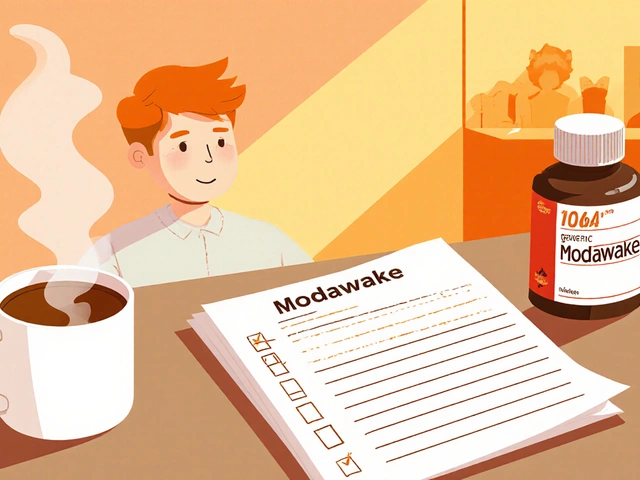Gastrointestinal motility: what it is and why it matters
Ever feel bloated, constipated, or have food sit heavy in your stomach? That’s your gut motility talking. Gastrointestinal motility is how food and waste move through your digestive system. When motility is normal, digestion flows. When it’s off, you get slow emptying, spasms, or racing bowels. This page helps you spot problems and shows simple things you can try before calling a specialist.
Common signs and causes
Signs of motility problems are pretty direct: persistent constipation, frequent diarrhea, bloating, early fullness after small meals, constant reflux, or repeated vomiting. If you notice unexplained weight loss, severe abdominal pain, or blood in stool, get medical help fast.
Causes range from medications (opioids, some antidepressants), chronic conditions like diabetes or Parkinson’s, to past abdominal surgery that left scar tissue. Diet, low activity, dehydration, and electrolyte imbalances also slow things down. Sometimes there’s no clear reason — that’s when doctors call it a motility disorder.
Simple fixes and medical options
Start with things you can control. Eat smaller, more frequent meals and avoid large, high-fat plates that slow stomach emptying. Chew food well and don’t rush meals. Drink water throughout the day; fiber helps but increase it slowly — too much at once can worsen bloating. Walk after meals for 10–20 minutes to help movement.
If constipation is the problem, try gentle osmotic laxatives like polyethylene glycol or natural options like prunes and psyllium. For slow stomach emptying (gastroparesis), doctors may try prokinetic drugs such as metoclopramide, domperidone, or newer agents like prucalopride for the colon. Antibiotics like rifaximin are sometimes used short-term if bacterial overgrowth is suspected.
Tests can pinpoint the issue: a gastric emptying scan shows how fast the stomach clears food; esophageal or anorectal manometry measures muscle contractions; a breath test can check for small intestinal bacterial overgrowth. Your doctor will pick tests based on your main symptoms.
For severe cases, options include endoscopic procedures, feeding tubes, or a gastric pacemaker. Surgery is rare and only for specific problems. Always weigh benefits and risks with your clinician.
When should you see a doctor? If symptoms are long-lasting, getting worse, or include high fever, blood in stool, severe pain, or fast weight loss, seek care. If symptoms are annoying but mild, try the simple fixes above for a couple of weeks and track changes. Write down meals, meds, and symptoms — that record helps your clinician fast-track the right tests and treatment.
Gut motility problems can feel disruptive, but many people improve with small, steady changes and the right medical plan. If you want, start a simple log of food and symptoms and bring it to your next visit — it’s the best first step toward better digestion.

The Impact of Sucralfate on Gastrointestinal Motility
As a blogger, I've recently been researching the impact of sucralfate on gastrointestinal motility. Sucralfate is a medication commonly prescribed to treat and prevent ulcers in the stomach and intestines. From what I've learned, it has a protective effect on the stomach lining, which in turn aids in the healing process of ulcers. Additionally, it appears to have minimal impact on the overall gastrointestinal motility, ensuring that the digestive process is not disrupted while treating ulcers. Overall, sucralfate seems to be a safe and effective treatment option for those suffering from ulcers and other gastrointestinal issues.
View More




